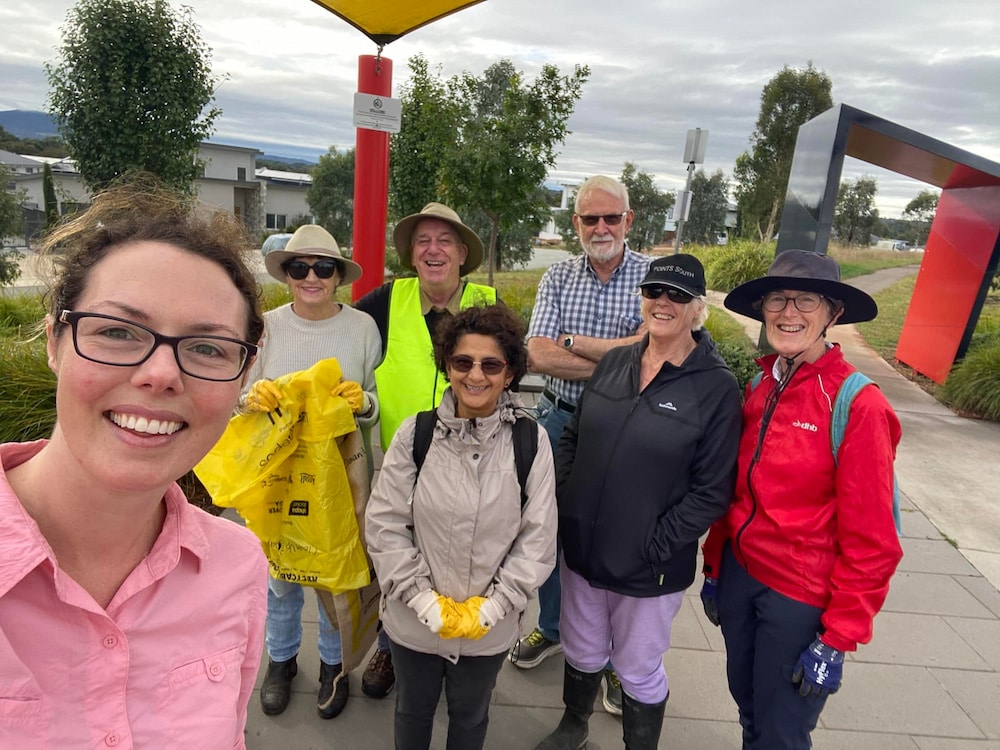For three decades, the first Sunday in March has been Clean Up Australia Day, when public-spirited volunteers pick up rubbish and keep their local areas clean. Canberra MPs and MLAs from across the political spectrum joined them as they braved wet weather to tidy up lake shores and suburbs, and fill garbage bags with litter.
Andrew Braddock (ACT Greens) and Leanne Castley (Canberra Liberals) helped to clean up Yerrabi Pond. Jo Clay (Greens) and Alicia Payne MP (Labor member for Canberra) worked with teams in Lawson, cleaning up Lake Ginninderra. Emma Davidson (Greens) revegetated land near the Mawson Ponds bike path. Johnathan Davis (Greens) and Nicole Lawder (Canberra Liberals) went to Lake Tuggeranong. Dr Andrew Leigh MP (Labor member for Fenner) and Rebecca Vassarotti (Greens) assisted in cleaning up Hackett.
Ms Payne said Clean Up Australia Day was a reminder of how much volunteers do to make Canberra a wonderful place to live – people like Terry DeLuca, who had organised the Hackett clean-up for 20 years running, or the volunteers who weed plant, and pick up rubbish in reserves all year round. “Thank you, everyone, for your tireless efforts!”
Dr Leigh loves getting out with his family on Clean Up Australia Day. This year, they found cans, straws, an old dog leash, and a piece of galvanised pipe.
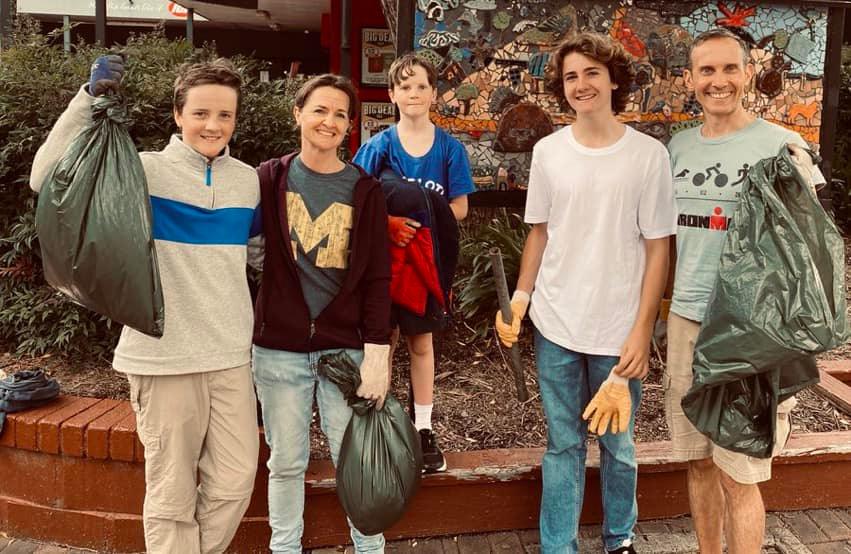
“But it’s not just about picking up garbage,” he said; “it’s also about engaging with the local neighbourhood associations that co-ordinate Clean Up Australia Day. And I know that when my boys have participated in Clean Up Australia Day, they won’t even dream of dropping litter on the ground.
“Last time I checked the surveys, Canberra was the least littered city in Australia, which is a reminder that we’re a community with a passionate sense of civic pride.”
“Canberrans understand how vital it is to keep our environment free of litter,” Jo Clay said. “I often go for a paddle on Lake Ginninderra, and I’m always sad to see litter washed downstream there. Clean Up Australia Day is a good reminder for us to take our rubbish home with us and clean up wherever we can.”
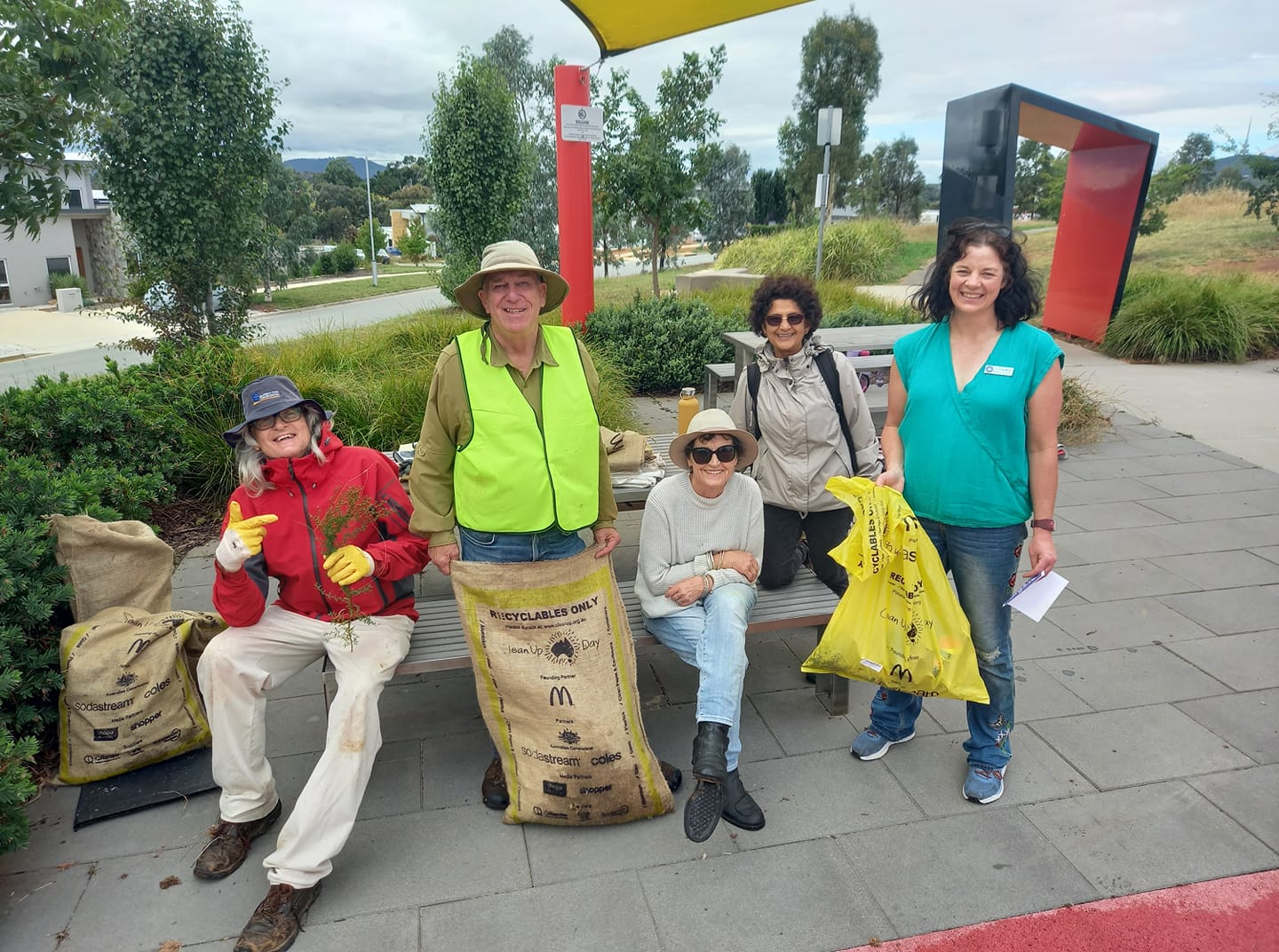
In a video posted on Facebook, Ms Clay showed bottles, cans, balls, children’s toys, and bits of plastic she found in the lake – left over from outdoor parties for COVID, she thought.
“A lot of stuff washes down into the reeds. It causes real problems for our wildlife; it pollutes the water; it’s not great all round.”
Full bottles of beer were a surprise, too!
Organisers had surmised face masks would account for much of the rubbish – more than 3 billion were discarded worldwide in 2020 – but there were fewer face masks than organisers had feared. Ms Clay found only 20 thrown out (“still quite a lot”), while Johnathan Davis found none.
Nicole Lawder has attended her local Clean Up Australia Day community event for a decade.
“Each year, I’ve helped either on foot or in my kayak at Lake Tuggeranong, an area which often suffers from litter and poor water quality,” she said.
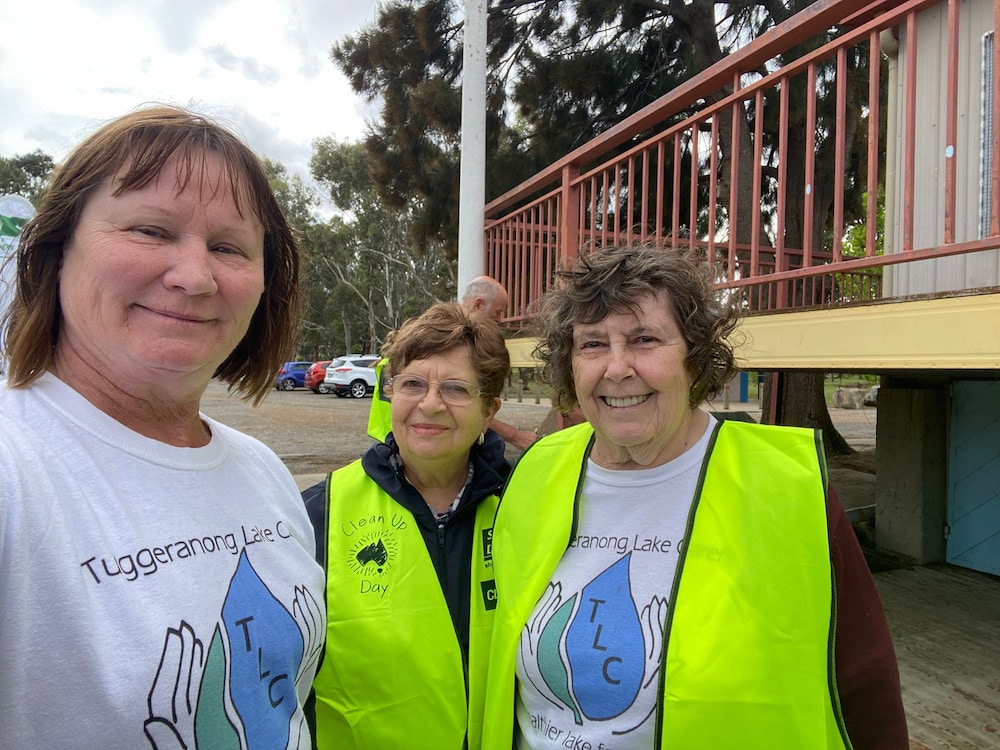
Like other Australians, she made a pledge to keep her environment tidy: collecting and composting leaves in her street’s gutters, to keep pollutants out of stormwater drains.
“Improving water quality in Canberra lakes and waterways is an issue I’m particularly passionate about,” she said.
“Leaves in gutters cause problems in the water catchment with algal blooms,” Mr Davis agreed. “Lake Tuggeranong is the jewel in the crown of Tuggeranong, and it’s important that we all do our bit to keep it that way.”
Fellow Liberals Elizabeth Lee pledged to reduce her household waste, Mark Parton to use fewer disposable coffee cups, Leanne Castley to use a reusable water bottle, and Peter Cain to advocate for waste processing services in his electorate of Ginninderra.
Clean up Australia every other day, too
“Clean Up Australia Day is such an important day because every bag of rubbish collected is a reminder of how precious our environment is, and how important it is to dispose of our waste properly,” said Alicia Payne.
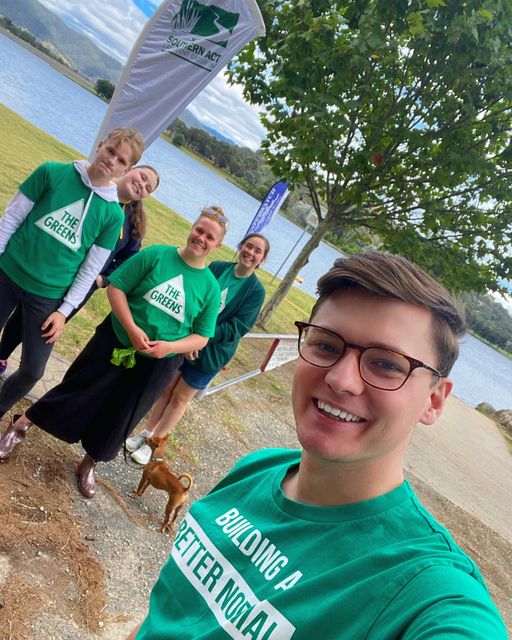
“While Clean Up Australia Day only comes around once a year, Canberrans can also help year-round by picking up any litter they see around town and putting it in a bin, because every little bit makes a difference.
“But the best way to help protect the Canberra environment is to change our consumption habits and try to reduce the amount of packaging we purchase.”
“Pick up your dog poo, take your rubbish home, put leaves on your garden / compost / Garden Waste bin,” Jo Clay advised. “And buy less! Make less waste, think about what you buy before you buy it. Do you need it? How long will it last? Will it become waste in landfill or a park or waterway somewhere?”
Johnathan Davis’s advice: “Take part in local Landcare groups. If you see litter, pick it up. Clean up after your pets. Encourage clean ups with your kids. Try to avoid single use plastics. Think about the lifespan of a product before you purchase it.”
A spokesperson said the ACT Government maintained and upgraded the ACT’s waterways and stormwater system to maintain a healthy environment. The ACT and Commonwealth Governments jointly funded the H20K community education program about removing nutrient pollution from waterways.
At the 2020 ACT election, Labor committed to cleaning up Lake Tuggeranong, and rolling out a Food & Organic Waste (FOGO) Scheme to cut down the amount of food and organic waste that ends up in landfills.

